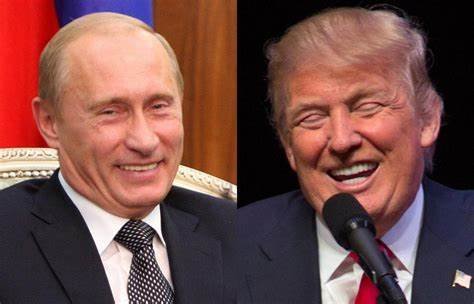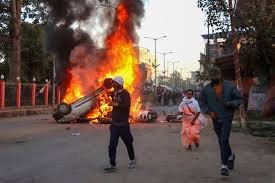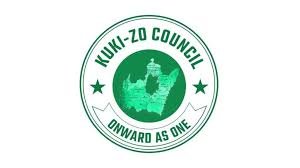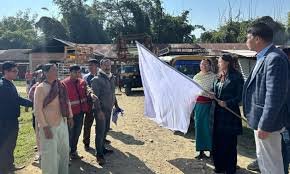India maintains that its May 10 ceasefire agreement with Pakistan was bilateral and brokered directly by military officials, not through third-party mediation.
By PC Bureau
June 6, 2025 | New Delhi
In a surprising diplomatic development, a top aide to Russian President Vladimir Putin has claimed that the recent armed conflict between India and Pakistan was halted with the “personal involvement” of former U.S. President Donald Trump. The statement, made by presidential aide Yury Ushakov during a media briefing in Moscow, marks the first time Russia has officially acknowledged any role by the United States in de-escalating South Asia’s most recent military standoff.
“President Putin and former President Trump discussed a wide range of issues during their 70-minute phone call, including the Middle East and the armed conflict between India and Pakistan, which has been halted with the personal involvement of President Trump,” Ushakov said.
The revelation has reignited a debate about third-party intervention in one of the world’s most sensitive bilateral fault lines.
India Pushes Back on Mediation Narrative
India responded swiftly and firmly, reiterating that the decision to stop hostilities on May 10, 2025, was made bilaterally between the Director Generals of Military Operations (DGMOs) of India and Pakistan, with no third-party involvement.
President Putin's aide Yury Ushakov has just revealed that the 4-day India-Pakistan conflict came up in the 75-minute telephonic conversation of President Putin and President Trump on June 4th. Mr. Ushakov has let it be known that it was the personal involvement of President…
— Jairam Ramesh (@Jairam_Ramesh) June 5, 2025
Ministry of External Affairs spokesperson Randhir Jaiswal, in a detailed statement, clarified, “The specific date, time, and wording of the understanding were worked out between the DGMOs of the two countries during their phone call on May 10 at 1535 hrs IST. The request for this call came from the Pakistani High Commission to the MEA at 1237 hrs on the same day. The call was delayed slightly due to technical issues on Pakistan’s end. It was scheduled based on the availability of the Indian DGMO.”
Jaiswal also emphasized that India’s position on third-party mediation remains unchanged: any dispute with Pakistan, including issues related to ceasefires or Kashmir, must be resolved bilaterally.
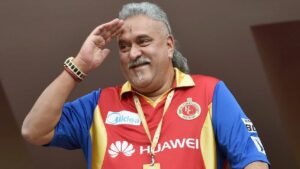 READ: Vijay Mallya Breaks Silence: “I’m No Thief” – Talks Kingfisher, Extradition, Return
READ: Vijay Mallya Breaks Silence: “I’m No Thief” – Talks Kingfisher, Extradition, Return
Trump’s Continued Claims
Former President Trump, currently on the 2024 U.S. campaign trail, has repeatedly claimed credit for facilitating peace between India and Pakistan. In posts on Truth Social and campaign rallies, he stated that he helped broker a “historic and heroic decision” by urging both nations to de-escalate. “I called. I said stop. And they stopped. That’s leadership,” Trump declared in a recent speech in Michigan.
He has also offered to “resolve the Kashmir issue” in the past, much to India’s discomfort. New Delhi has consistently pushed back against these assertions, maintaining that Kashmir is an internal matter and not open to foreign intervention.
Political Diplomacy: India Briefs Moscow
Amid this diplomatic flux, an Indian multiparty delegation led by DMK MP Kanimozhi visited Moscow earlier this week. The delegation met Russian lawmakers and policy experts to brief them on India’s consistent stance against Pakistan-sponsored terrorism and reiterated the country’s opposition to external mediation in regional security matters.
A member of the delegation told The Indian Express, “The visit was planned earlier, but the timing proved important. We made it very clear that India’s sovereignty and decision-making in matters of national security are non-negotiable.”
Expert Reactions Mixed
Strategic analysts are divided over the Russian statement. Dr. Rohan Mukherjee of Yale-NUS College said, “Russia’s acknowledgment may be more about signaling ties with Trump than about actual facts on the ground. It complicates India’s diplomatic narrative and underscores the importance of consistent messaging.”
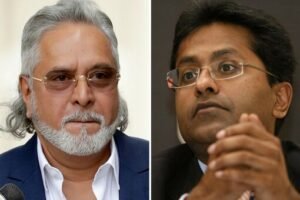 : Mallya’s Podcast: Lalit Modi Cheers, Kingfisher Staff Fume
: Mallya’s Podcast: Lalit Modi Cheers, Kingfisher Staff Fume
Former Indian ambassador Nirupama Rao took to X to comment: “No one stops nuclear-armed neighbors from speaking. They stopped firing not because Trump called, but because it was time. India must ensure that facts aren’t distorted in election soundbites.”
What’s Next?
With Trump’s campaign heating up and Russia offering unexpected support for his version of events, the narrative around the May ceasefire is becoming more politicized. For India, the challenge lies in maintaining its bilateral doctrine on sensitive matters, even as major powers attempt to rewrite or co-opt the story.
As the political spotlight on Trump’s foreign policy record intensifies, the Indo-Pak ceasefire may well become another wedge issue in the U.S. elections—one that India prefers to stay out of.


